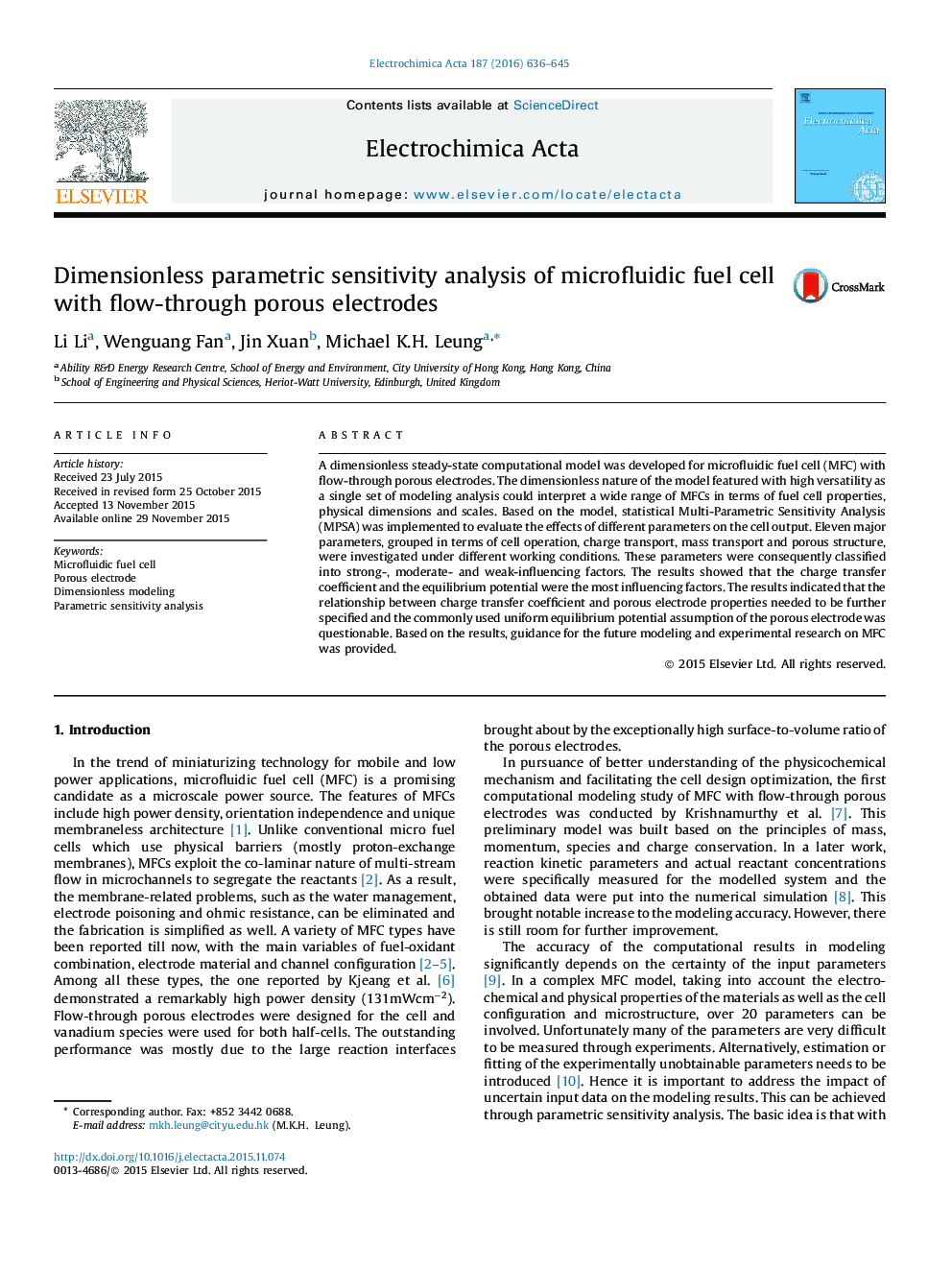| Article ID | Journal | Published Year | Pages | File Type |
|---|---|---|---|---|
| 183311 | Electrochimica Acta | 2016 | 10 Pages |
•A dimensionless model for microfluidic fuel cell is developed.•Modeling parameters are analyzed using Multi-Parametric Sensitivity Analysis.•Relative importance of each parameter on the cell performance is evaluated.•Charge transfer coefficient is found the most influencing factor.
A dimensionless steady-state computational model was developed for microfluidic fuel cell (MFC) with flow-through porous electrodes. The dimensionless nature of the model featured with high versatility as a single set of modeling analysis could interpret a wide range of MFCs in terms of fuel cell properties, physical dimensions and scales. Based on the model, statistical Multi-Parametric Sensitivity Analysis (MPSA) was implemented to evaluate the effects of different parameters on the cell output. Eleven major parameters, grouped in terms of cell operation, charge transport, mass transport and porous structure, were investigated under different working conditions. These parameters were consequently classified into strong-, moderate- and weak-influencing factors. The results showed that the charge transfer coefficient and the equilibrium potential were the most influencing factors. The results indicated that the relationship between charge transfer coefficient and porous electrode properties needed to be further specified and the commonly used uniform equilibrium potential assumption of the porous electrode was questionable. Based on the results, guidance for the future modeling and experimental research on MFC was provided.
